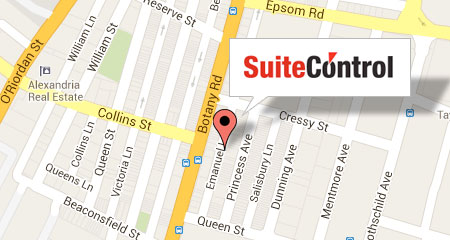Rethinking Dry January: A Mindful Approach
“If you’re doing a happy hour with friends and everybody else is still having alcohol, you can enjoy the same taste without a buzz and, more importantly, without the hangover the next day.” Figure out what alcohol does for you, suggests Dr. Kar, in order to find a suitable alternative. For example, it might calm or distract you; instead, drinking water, having a hot bath, a nice meal, a brisk walk or a phone call with a friend could provide the feeling you’re craving.
- Your goal might be to cut back, but it might be harder to stay committed and on track without a proper action plan in place.
- This could be thanks to committing to becoming more aware of your drinking habits and mindset around alcohol, as well as drink tracking.
- When I meet friends for drinks, the first drink I order will be non-alcoholic.
- Eliminate Alcohol At HomeIf alcohol is in your line of sight each day (at the front of your bar cart or in your refrigerator), you’re more likely to give up on Dry January.
- In the U.K, another 130,000 people sign up, showing that each year as more people find out, more people join.
What Are the Benefits of Dry January?
Going out for dinner and drinks is a favourite pastime for many, and some people drink alcohol before bed to wind down or need a glass of wine after a long day at work. Instead, consider heading to a pottery class or yoga with friends and think about mindful activities that can replace your drinking at home. Instead of drinking before bed, try another activity to help https://bojankezastampanje.com/technology-addiction.html you unwind such as simple yoga exercises or meditation. Tell Your FriendsLetting your friends know you’re doing Dry January can limit peer pressure and awkwardness if you’re somewhere getting drinks. Although you don’t owe anyone an explanation, people are still naturally curious when others aren’t drinking.

What happens to your body after Dry January?
“We all need allies, so it always helps to have somebody who is encouraging, positive, and nonjudgmental,” Dr. Brown says. For those seeking to relieve anxiety or stress, Dr. Brown emphasizes the importance of tapping into relaxing solutions that work best for you, such as deep breathing or guided meditation. Excessive alcohol use over time can lead to liver issues like inflammation and scarring, or cirrhosis, along with vitamin deficiencies and heart disease, says Dr. Brown. Award-winning and vegan-friendly non-alcoholic beer that tastes great. They’ve got tons of different flavors for every occasion and a $10 off coupon when you sign-up, too.

How Much Water Should You Drink in a Day?
Replacing booze with alternatives can help you manage your cravings during Dry January and can help you build better habits beyond. Find An Accountability PartnerDo you have a friend or family member who wants to do Dry January as well? Having an accountability partner can help you stay strong, especially in social situations where others are drinking. For example, instead of heading to happy hour, figure out other things you can do like a workout or art class. A challenge is always easier when there’s someone else supporting you and holding you responsible.
- You don’t want to pick up your old drinking-too-much habits on February 1.
- For others, it can be a chance to give their body (and budget) a break after the holiday season.
- Right after a 3-minute quiz, you get a personalized plan for your goals and current habits.
- Users can track their drinking through texts to the app, which in turn sends messages updating them on their progress relative to their intention.
- Preparing for the specific hurdles you’ll encounter will help you not only feel more capable but also give you a go-to action plan for whatever stands in your way.
- They can be your accountability buddy and help you learn the tools you need to adapt to drinking less while helping you work towards improving other areas of your life that cause you to drink.
Choosing not to drink alcohol for a month can set you on a healthier path.
- Some examples include going on a run, taking a hot bath, or calling up a friend.
- Social drinking is widely accepted and is seen as a way to lighten the mood and bring folks together.
- Any hobby that gets you out of the house and expressing yourself is going to lower stress levels, get you meeting new people, and create the opportunity to improve your overall mental health.
- It officially launched as a campaign in 2013 by Alcohol Change UK and is now a worldwide movement.
- If you’re not ready to completely cut alcohol from your life, that’s ok.
This challenge gives you a specific end date and encourages you https://www.litkonkurs.ru/page/13435/?dr=auth_abc.php to do it on your terms. If you’re not ready to completely cut alcohol from your life, that’s ok. This challenge lets you become more aware of your habits and help you notice where you can begin to reduce drinking. The beginning of a new year is a good time to reassess your drinking habits.
The compensation we receive from advertisers does not influence the recommendations or advice our editorial team provides in our articles or otherwise impact any of the editorial content on Forbes Health. “That would be a real indication that you need to talk to a medical professional about getting medical treatment for withdrawal and not stopping on your own,” Wakeman said. “Even just measuring your behavior, whether it’s alcohol or exercise or your diet, can be an intervention in and of itself,” she said.
Whether you choose to follow a Dry or Dry(ish) January, know that you are supported and have a multitude of tools and resources available to you. With millions of people taking part every http://bani-i-sauni.ru/books/item/f00/s00/z0000002/st013.shtml year, you can join along and become a part of a positive community that’s ready to motivate you anytime you need. You don’t have to do it alone, and you don’t have to commit to anything you’re not ready for, either. What began as a weight-loss app now covers chronic and non-chronic conditions, such as stress and anxiety, hypertension, and diabetes.








